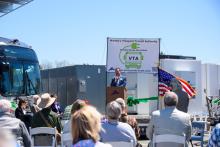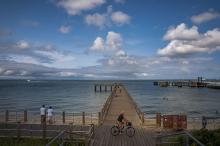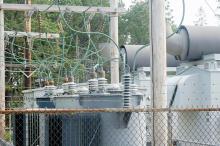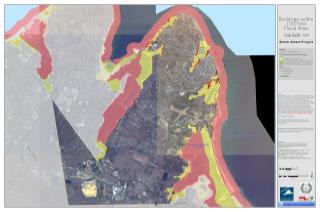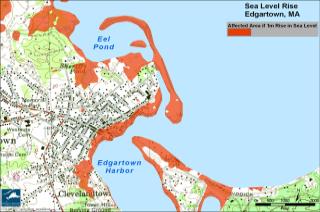
Climate change
2010
There’s been a great deal of focus lately on the local effects of the rush by federal and state authorities to build big wind farms near the Vineyard to ameliorate climate change, but very little focus on the local effects of climate change itself.
Except in Oak Bluffs, where there is quiet work underway to prepare for the worst, including sea level rise that is expected to erase beachfront property as it is now known, and the potentially ruinous effects of extreme storms caused by climate change. And it’s all backed by a state grant.
2009
The Copenhagen climate summit has been much in the news for two weeks and the media is full of stories about rising carbon dioxide (C02) levels, increasing acidity of the oceans, drastic changes in weather patterns, the warmest decade on record, melting glaciers, rising sea water levels and coastal communities in imminent danger of inundation. And that’s just the tip of the melting iceberg!
The extraordinary beauty, rich geological history and challenges for preservation of the Vineyard landscape were all topics for discussion last Wednesday evening in paleoecologist David Foster’s guest lecture at the Polly Hill Arboretum in West Tisbury.
2008
The Future of Fisheries: Marine Protected Areas, Ecosystem Management, Climate Change and All That is the title of a free talk slated for Thursday, June 26, at 5 p.m. at the Chilmark Public Library.
Dr. Andrew Rosenberg, professor of natural resources policy and management and professor of the Institute for the Study of Earth, Oceans and Space at the University of New Hampshire, is the guest speaker.
2007
Here is a sobering fact: we live on an Island and the sea is rising.
The consensus among coastal scientists is that our children or grandchildren will see a sea level rise of about one metre in this century, an estimate that does not even take into account the rapid rate of melting glaciers. The New York Times reported last week that “the arctic ice cap melted this summer at a shocking pace, disappearing at a far higher rate than predicted even by the most pessimistic experts in global warming.”
Having lived in the Midwest for a few years, Woods Hole Research
Center scientist Dr. Michael T. Coe knows that global warming sounds
good to some ears - it implies shorter winters and higher
temperatures.
